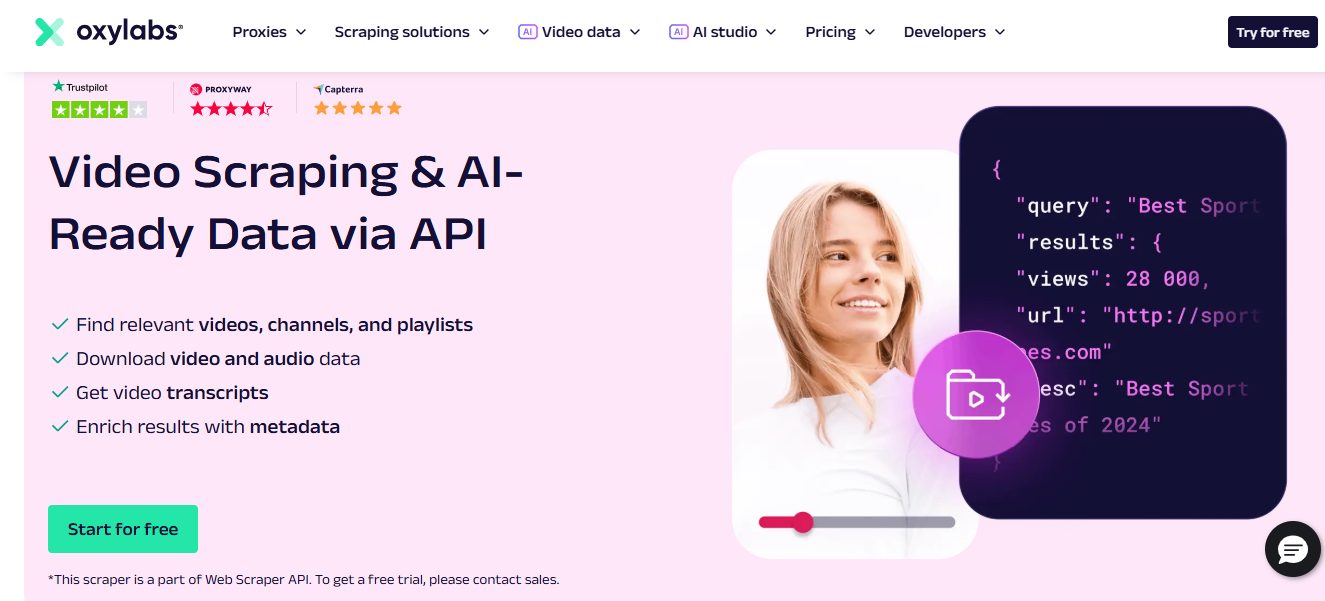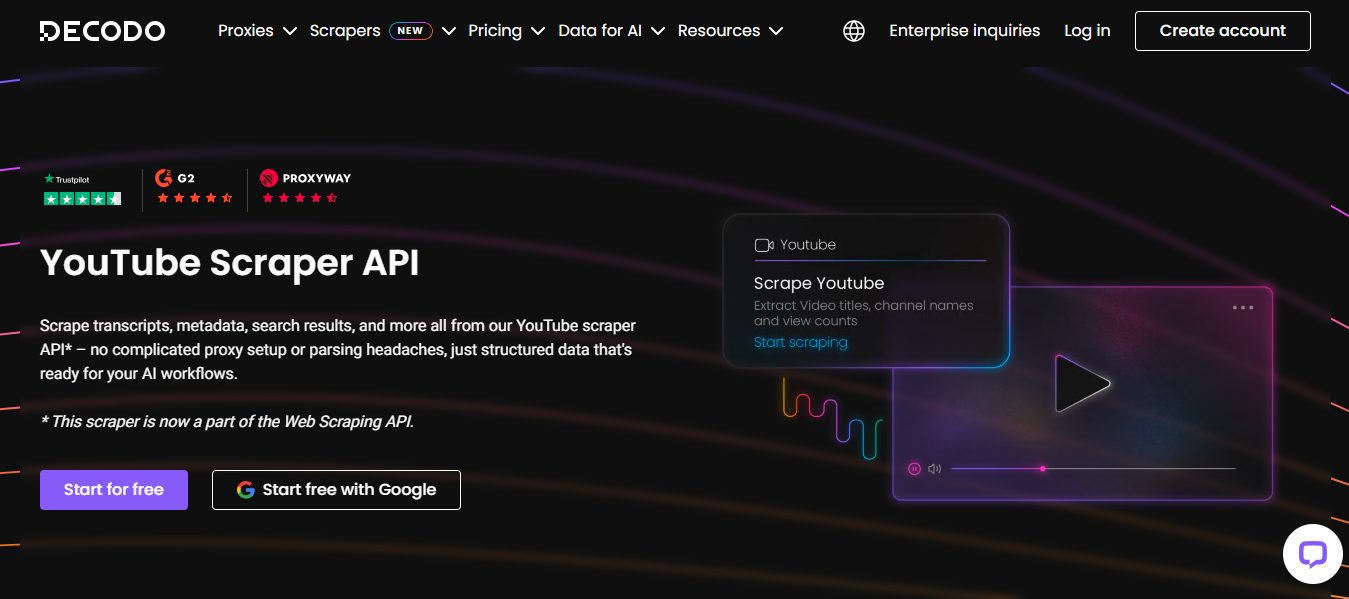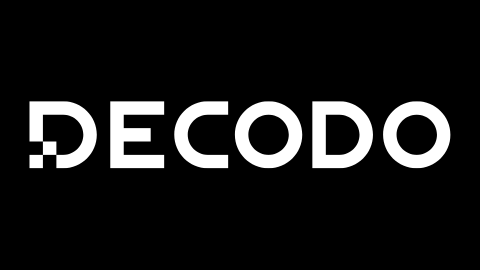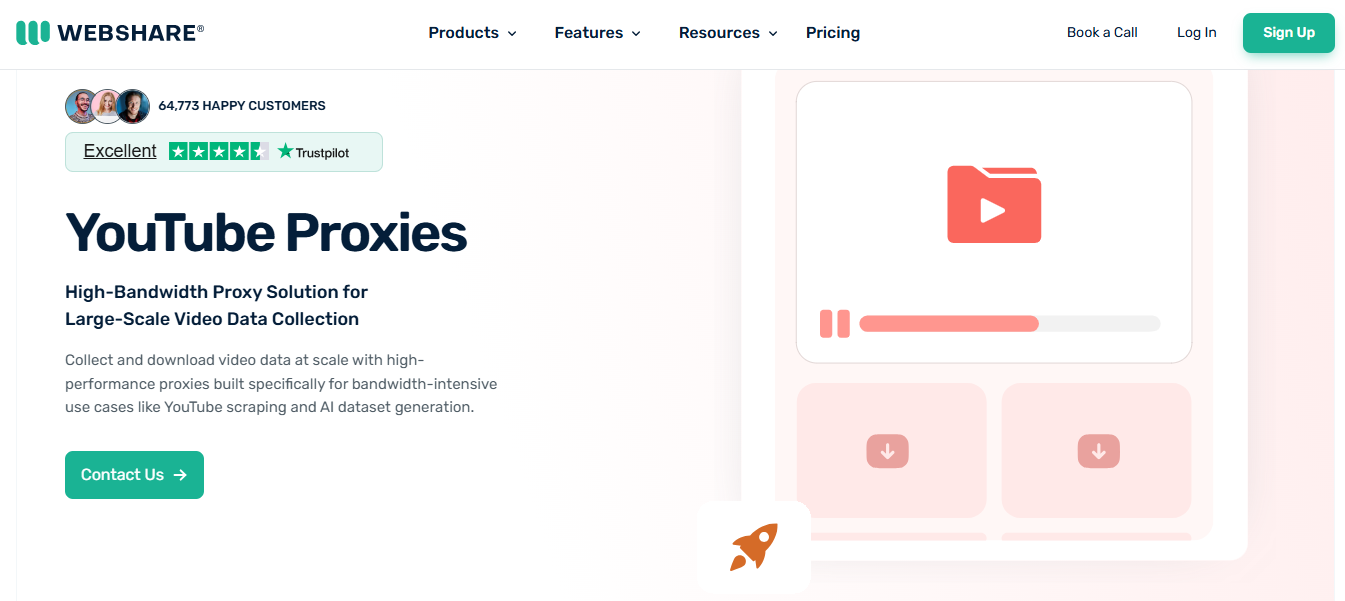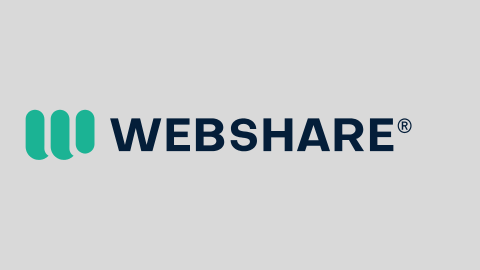Want the best YouTube Scraper? Read on to find out.
In today’s data-driven world, YouTube has evolved from a video-sharing platform to a goldmine of valuable insights. With over 2.5 billion users and hundreds of millions of videos, the platform holds immense potential for businesses, developers, researchers, marketers, and content strategists.
However, accessing structured YouTube data at scale manually is nearly impossible. That’s where YouTube scraping comes in—a powerful solution for programmatically extracting publicly available data from the platform.
In this detailed guide, we’ll explore everything you need to know about YouTube scrapers, their uses, legal considerations, and how to choose the best scraper provider. We’ll also spotlight three of the leading brands—Oxylabs, Webshare, and Decodo—who offer cutting-edge solutions to empower your scraping operations.
Table of Contents
What is a YouTube Scraper?
A YouTube scraper is a tool, script, or API designed to extract publicly available data from YouTube’s front-end. This can include:
- Video metadata (titles, views, likes, dislikes, upload date)
- Channel information (subscribers, video count, etc.)
- Comments and comment metadata
- Tags and keywords
- Search results
- Trending videos
- Suggested videos
- Playlists
- Video transcripts
Rather than scrolling through endless videos manually, scrapers allow for automated bulk data collection, which can be stored, analyzed, or visualized for business intelligence.
Why Scrape YouTube?
There are multiple use cases for YouTube scraping across various industries:
✅ 1. Market Research & Trend Analysis
Brands and creators want to know which content performs well. Scraping YouTube helps detect trends, viral formats, and audience preferences.
✅ 2. Sentiment Analysis
Scraping video comments and analyzing sentiment offers insight into public opinion on products, campaigns, or personalities.
✅ 3. SEO & Content Strategy
By scraping keywords, titles, and tags of high-ranking videos, creators can optimize their own content for better visibility.
✅ 4. Competitor Intelligence
Business can monitor what competitors are uploading, their engagement rates, and content strategies.
✅ 5. Academic Research
Researchers use YouTube scraping to analyze discourse, behavior, and trends across demographics.
YouTube Scraping Challenges
While scraping offers powerful advantages, it also comes with challenges:
- IP blocking: YouTube may block your IP for too many requests.
- Rate limits: Too many requests too quickly trigger defenses.
- Data structure changes: YouTube constantly updates its UI and backend.
- Captcha and bot detection: Automation triggers challenges.
- Legal considerations: Always scrape only public data, respect terms of service, and comply with local laws.
To overcome these, a robust scraping infrastructure is required—and that’s where premium proxy + API providers like Oxylabs, Webshare, and Decodo come in.
Top 3 YouTube Scraper Solutions (2026)
🏆 1. Oxylabs – Enterprise-Grade YouTube Scraping Infrastructure
Oxylabs is one of the most respected data collection companies, offering advanced residential and datacenter proxies as well as dedicated YouTube Scraper APIs.
This makes it an excellent choice for enterprises that need reliable video metadata extraction, large-scale comment analysis, and keyword trend tracking directly from YouTube.
Why Choose Oxylabs for YouTube Scraping?
- Dedicated Scraper API for YouTube
- Built-in CAPTCHA solving and retries
- Automatic parsing of structured YouTube data
- Global residential and mobile proxies
- 24/7 enterprise support
- Seamless integration with Python, Node.js, and more
- Trial: Unlimited trial for scraping tools (up to 2K results)
⚠️ Note: Oxylabs’ YouTube scraper does not offer any discounts.
Use Case: An eCommerce brand used Oxylabs to scrape thousands of product reviews and video unboxings from YouTube weekly, combining it with sentiment analysis to guide product strategy.
🥈 2. Decodo – The Rebranded Power of Smartproxy
Decodo (formerly Smartproxy) emerged as an advanced scraping solution, delivering robust proxy support alongside AI-driven data collection tools optimized for large-scale scraping, LLM training, and real-time market intelligence.
Why Decodo is Great for YouTube Data Collection
- 125M+ IPs across 195+ locations
- Advanced anti-bot bypassing and IP rotation
- Real-time or on-demand data collection
- 100+ ready-made scraping templates
- Intuitive dashboard with built-in statistics
Use Case: A content strategy agency leveraged Decodo’s scraping infrastructure to track performance metrics and conduct keyword research across the top 100 YouTube tech channels.
🥉 3. Webshare – Affordable & Developer-Friendly Proxy Network
Webshare is known for its developer-first approach, offering some of the most affordable rotating datacenter proxies, ideal for lightweight and medium-scale YouTube scraping.
Users are now also able to make a custom query for obtaining Webshare’s new YouTube proxies, specifically designed for bandwidth-intensive use cases like video scraping, and AI dataset generation.
Why Webshare Stands Out
- Affordable proxy packages for startups and developers
- Easy-to-navigate dashboard
- Instant activation
- High-speed datacenter proxies optimized for smaller-scale video YouTube scraping tasks
- YouTube proxies tailored for larger, more intense YouTube scraping tasks
- Compatible with browser automation tools (Puppeteer, Playwright)
Use Case: A small digital agency built a real-time dashboard tracking the most-commented YouTube videos on political topics, powered by Webshare’s proxies.
🔍 Other Notable YouTube Scraper APIs Worth Exploring
⭐ 4. IPRoyal – Budget-Friendly and Private Scraping Proxies
IPRoyal has steadily become a go-to provider for scraping projects that require reliability without breaking the bank. Their YouTube scraping solution isn’t a full API, but with their premium rotating proxies, developers can build or run custom scraping scripts efficiently.
Why IPRoyal Is a Solid Choice for YouTube Scraping:
- Access to a Royal Residential Proxy pool with ethically-sourced IPs
- Offers static (ISP) and rotating proxies optimized for scraping
- User-friendly dashboard and robust API access
- Suitable for scraping YouTube search results, channel analytics, and video metadata
- Competitive rates and flexible bandwidth options
- No CAPTCHAs when paired with headless browser setup
Use Case: A freelance growth marketer used IPRoyal to scrape thousands of trending video thumbnails and metadata for a YouTube trend-tracking app.
⭐ 5. Bright Data – The Full-Fledged YouTube Scraper Platform
Formerly known as Luminati, Bright Data provides one of the most sophisticated scraping infrastructures in the industry. They offer a YouTube Scraper API with automatic parsing, rotating IPs, built-in CAPTCHA solving, and legal compliance systems.
Highlights:
- AI-powered scraper for real-time YouTube results
- Choose between residential, datacenter, and mobile proxies
- 99.99% uptime with real-time monitoring
- GDPR & CCPA compliance included
- Ideal for large-scale, legally-sensitive scraping operations
Use Case: A media analytics firm relied on Bright Data to monitor YouTube influencer engagement metrics across five countries daily.
⭐ 6. ScraperAPI – Plug-and-Play YouTube Scraping
ScraperAPI doesn’t specialize in YouTube scraping per se, but it’s ideal for developers wanting an easy plug-and-play REST API to power their custom scripts.
Features:
- Rotates IPs, handles CAPTCHAs, and retries failed requests automatically
- Supports JavaScript-heavy YouTube pages via headless rendering
- Generous free tier (5,000 requests/month)
- Works with Python, cURL, PHP, and Node.js
Use Case: A SaaS tool scraped YouTube comments and video titles using ScraperAPI to detect trending sentiment keywords per niche.
⭐ 7. SerpApi – YouTube Data via Google Search
SerpApi offers Google Search API that includes YouTube video results. It doesn’t scrape directly from YouTube but pulls video data as it appears on Google SERPs.
Pros:
- No scraping infrastructure needed
- JSON responses with parsed YouTube data
- Easy filtering for location, language, and time
- Built-in accuracy monitoring
Use Case: A local SEO agency used SerpApi to monitor which YouTube videos ranked highest in Google for location-based keywords.
How to Choose the Right YouTube Scraper API
🔸 Ask Yourself:
- What’s your scraping volume?
- Do you need residential or datacenter proxies?
- Do you require an API with built-in parsing?
- Do you need global IP diversity?
- Do you prioritize cost or enterprise reliability?
Here’s a comparison table to help guide you:
| Feature | Oxylabs | Webshare | Decodo (Smartproxy) |
|---|---|---|---|
| Scraper API for YouTube | ✅ Yes | ❌ Not native | ✅ Yes |
| Residential Proxies | ✅ Yes | ❌ No | ✅ Yes |
| Datacenter Proxies | ✅ Yes | ✅ Yes | ✅ Yes |
| CAPTCHA Handling | ✅ Advanced | ⚠️ Manual | ✅ Built-in |
| IP Pool Size | 100M+ | 30K+ | 40M+ |
| Free Trial | ✅ On request | ✅ Yes | ✅ Yes |
| Ideal Use Case | Enterprise | Developers | Agencies, Freelancers |
- Use Rotating Proxies – Switch IPs per request.
- Respect Rate Limits – Space out requests to mimic human behavior.
- Use Headless Browsers – Tools like Puppeteer and Playwright help bypass JavaScript-based loads.
- Handle Errors Gracefully – Expect CAPTCHAs, 429 errors, and implement retries.
- Scrape Only Public Data – Respect YouTube’s terms and avoid authentication-based data.
- Stay Up to Date – Monitor any front-end code changes or API restrictions.
Sample Use Case: Building a YouTube Competitor Tracker
Here’s how you can use a YouTube scraper to track a competitor:
- Target: Competitor’s Channel
- Tools: Oxylabs Scraper API + Decodo Proxies
- Frequency: Daily snapshot
- Data Points: New uploads, views, tags, engagement rate
- Output: Weekly email report with analytics and insights
YouTube Scraper: Frequently Asked Questions (FAQs)
1. Is YouTube scraping legal?
Yes—if you’re scraping publicly accessible data (e.g., video titles, view counts, channel names). You must avoid accessing private data, impersonating users, or violating YouTube’s terms of service. To stay safe, ensure GDPR/CCPA compliance and avoid excessive requests.
2. Can I use YouTube’s API instead of scraping?
YouTube’s official API is helpful but comes with rate limits, restricted access to certain data, and strict quotas. It may also not support all use cases like scraping trending comment threads or multiple search queries in parallel. Scraping allows for more flexibility but requires more caution.
3. What programming languages can I use for YouTube scraping?
Most YouTube scraping tools support Python, Node.js, PHP, Ruby, and Java. Libraries like BeautifulSoup, Puppeteer, Playwright, and Selenium are commonly used in tandem with scraping proxies or APIs.
4. What are the best proxies for scraping YouTube?
The best proxies depend on your volume and goals:
- Residential proxies (like Oxylabs, Decodo, IPRoyal) are ideal for high-trust scraping with fewer bans.
- Datacenter proxies (like Webshare) are budget-friendly and faster for smaller tasks.
- Rotating proxies ensure new IPs per request, reducing footprint and blocks.
5. What data can I scrape from YouTube?
With the right setup, you can scrape:
- Video titles, views, likes/dislikes, duration, tags
- Channel data: subscriber count, number of uploads
- Trending video lists
- Search results (titles + snippets)
- Comments and replies
- Playlist content
- Related video suggestions
- Upload frequency and engagement
Final Thoughts
Scraping YouTube gives you access to a universe of insights—from tracking audience behavior to identifying keyword trends and monitoring competitors. The key is using the right tools and partners.
If you’re just starting out or building at scale, don’t reinvent the wheel. Use robust providers like Oxylabs, Webshare, and Decodo to simplify your operations and ensure accuracy, reliability, and compliance.
Remember: the power of data lies in what you do with it.
INTERESTING POSTS
- Google Scraper: How to Ethically and Efficiently Extract Search Data
- Best Web Scraper APIs: Unlocking the Web’s Data
- How To Watch YouTube Videos That Are Blocked In Your Country
- Take Your Small Business To The Next Level With YouTube Marketing
- Amazon Scraper API: Best Tools To Extract Data From Amazon At Scale
About the Author:
Meet Angela Daniel, an esteemed cybersecurity expert and the Associate Editor at SecureBlitz. With a profound understanding of the digital security landscape, Angela is dedicated to sharing her wealth of knowledge with readers. Her insightful articles delve into the intricacies of cybersecurity, offering a beacon of understanding in the ever-evolving realm of online safety.
Angela's expertise is grounded in a passion for staying at the forefront of emerging threats and protective measures. Her commitment to empowering individuals and organizations with the tools and insights to safeguard their digital presence is unwavering.





